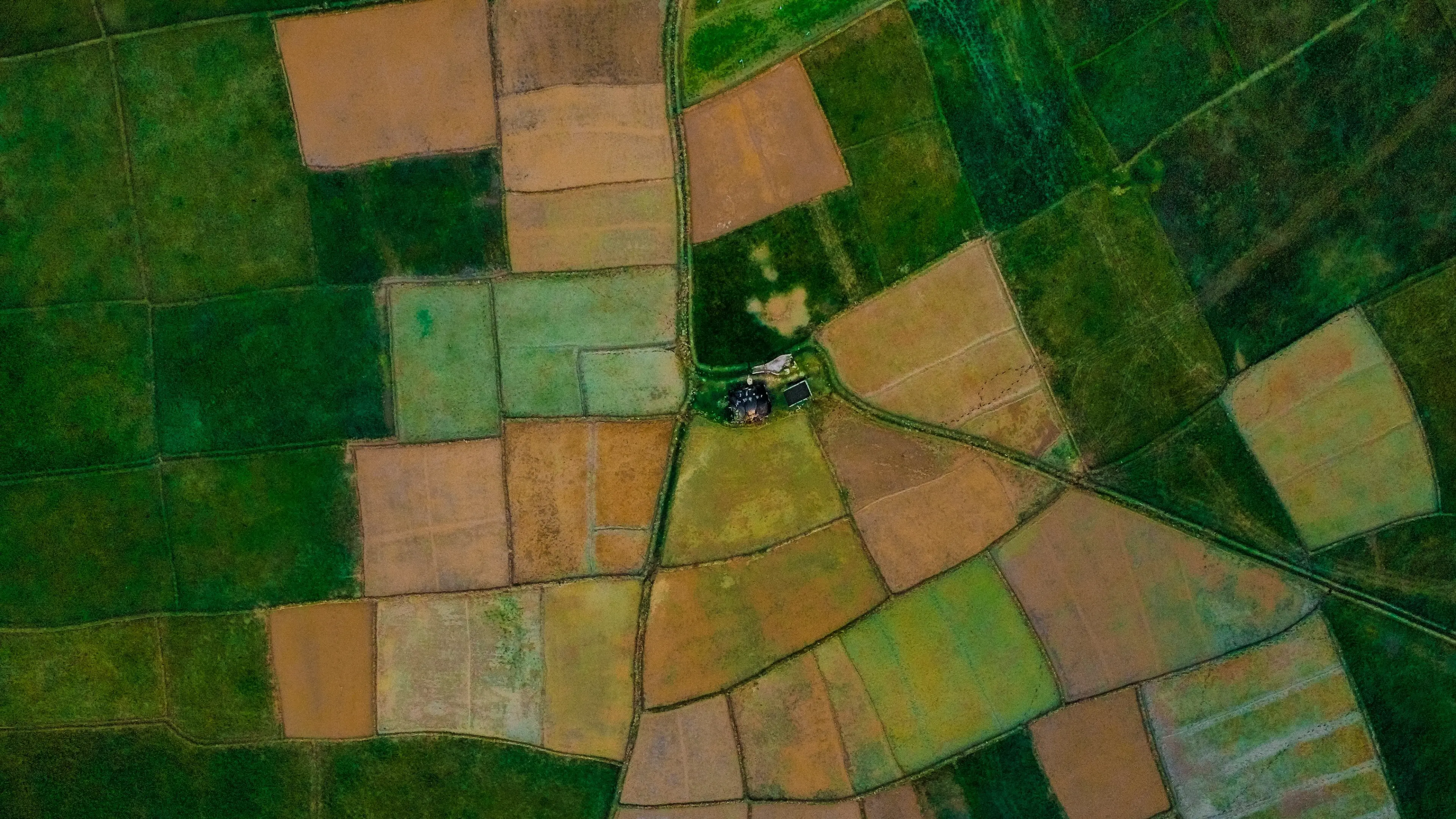Since our founding, we’ve developed industry-leading AI and machine learning models as a central component of our tech stack to deliver precision and scale in how we interpret satellite imagery, simplify data collection for farmers, and scale our technology across diverse geographies. In recent years, we’ve received recognition for these innovations, such as CB Insights naming Regrow one of the 100 most promising AI startups to watch in 2022, and we’ve also received many questions about AI from industry leaders seeking to capture its potential in their work.
We thought it’s high time we shared a peak under the hood at some of the key AI tech in the Regrow platform and discussed how AI will continue to unlock opportunities for high impact, high scale climate action in the ag sector.
Current AI Applications in Regrow Ag Products
Advanced Crop Identification and Management
Companies and public organizations seeking to promote positive change need accurate and up to date insight into crop cycles and grower management practices across diverse geographical regions to inform resource allocation and decision making. However, many sourcing regions that are critical to agrifood supply chains have limited data availability, particularly for historical data that is central to regenerative ag programs. As a result, key decision makers in sustainability, procurement, and finance functions often rely on stale, nonrepresentative data sources to inform regenerative ag program investments.
To enable better decision making, Regrow developed transformer models for time-series data analysis. Transformer models feature extraction, pattern recognition, and classification capabilities that can be uniquely adapted to the tasks of crop identification and plant/harvest date determination across continents (deployed across North America, Europe, Australia, and Brazil). These foundational models allow us to:
- Expand into data-limited locations efficiently and cost-effectively
- Predict planting and harvest dates with minimal ground truth data
- Improve accuracy in low-data environments (often, small-holder farming systems) through active learning techniques
MonitorML: AI-Powered Field-Level Data Collection
Farmer data collection and validation is central to developing scalable regenerative ag programs that are simple for growers to enroll in, and straightforward for project administrators to get audited and certified. Regrow’s remote sensing model, MonitorML, supports growers and administrators by providing evidence of practice changes that can be third-party validated. To achieve this, MonitorML analyzes time series satellite imagery to:
- Identify boundaries of arable fields
- Determine crop cycles over recent years, including planting and harvest dates
- Highlight the presence and effectiveness of conservation practices like cover cropping or conservation tillage
MonitorML streamlines the validation process for producers enrolling in regenerative agriculture programs and increases producer confidence in estimates of present and future ecosystem outcomes on their property, which is crucial for credibility of sustainability reporting and grower program participation.
Innovative Rice Irrigation and Multi-cropping Analysis
Some regenerative practices are time sensitive implementation decisions, such as irrigation timing to optimize water use in rice cultivation and managing multi-cropping systems. Those same practices are key levers driving production and emissions cycles. Getting this time sensitive data requires deep insight into complex agricultural systems, particularly in regions where data is scarce. To solve this data scarcity problem, Regrow leverages the Seq2Seq temporal transformer model to:
- Detect agricultural events like irrigation, planting, and harvesting in data-limited environments
- Expand this approach to cover crop planting and harvest dates, tillage practices, and commodity crops in CONUS and the EU
- This work will be presented at the 2024 AGU conference by Zhuangfang Yi, Delineating Time-Sensitive Agricultural Practices with a Temporal Transformer Model for Methane Emission Reduction in Rice Paddies
Using Seq2Seq, Regrow supports better-informed decision-making and resource management for program managers and growers participating in regenerative ag incentive programs.
Innovative Approach to Literature Analysis
Literature review is central to carbon and ecosystem modeling in agricultural landscapes, and has historically created bottlenecks in the industry’s ability to rapidly innovate and scale. Regrow combines two powerful techniques to accelerate literature analysis and improve modeling capabilities:
- Prompt Engineering: We've developed sophisticated prompts that guide the model to focus on relevant agricultural information, ensuring high-quality, targeted results.
- Retrieval Augmented Generation (RAG): This technique allows us to supplement the model's knowledge with our extensive agricultural database, providing context-specific information for more accurate and relevant outputs.
By integrating these methods, we've created a robust system for identifying targeted treatments and treatment pairs in agricultural research, significantly enhancing our ability to provide data-driven insights to farmers and agricultural stakeholders.
We're excited to present our findings at this week’s AGU 2024 conference. Our presentation, "Enhancing Agricultural Practice Categorization and Model Validation Using Large Language Models," will demonstrate how this innovative approach is revolutionizing agricultural practice categorization and model validation.
AI-Enhanced Representative Fields Methodology
Implementing regenerative ag programs across global landscapes requires a multi-year investment and planning strategy using accurate data. Yet conventional emissions and practice data are often outdated and imprecise.
To deliver dynamic, representative forecasts of the impact of regenerative ag practices on company sourcing regions, Regrow employs a representative fields methodology using AI-based clustering algorithms to:
- Capture variable environmental conditions across landscapes
- Better reflect the heterogeneity of real-world farming scenarios
- Support crop calibration at scale and model new interventions
Through this representative fields methodology, Regrow enables more accurate modeling and forecasting of productivity and ecosystem outcomes, allowing companies to make better-informed decisions about ingredient sourcing, crop management and sustainability practices across diverse landscapes.
An example use case highlighting this methodology has been accepted for publication in the forthcoming peer-reviewed book, “Current crop models: State-of-the-art and future developments (ed. Prof. Gerrit Hoogenboom), "CH09 - The DNDC crop model.”
Addressing Current Limitations of AI in Agriculture
While AI has proven invaluable to accelerate data analysis and generate insights at scale, we also recognize its current limitations for regenerative agriculture. These limitations require technology providers like Regrow to augment AI with other programmatic solutions and human expertise to solve the unique challenges in our industry.
Direct MRV for Ecosystem Services
The measurement, reporting, and verification (MRV) of ecosystem services in farming remains challenging for direct AI implementation in quantifying outcomes related to carbon, water and biodiversity. Instead, we leverage biogeochemical models validated for specific crop functional groups, management practices, and geographies. These models provide:
- Reliable, explainable, and verifiable estimates of current GHG emissions. Due to these characteristics, the biogeochemical models are currently the only way to capture the ecosystem outcomes in a compliant way with leading regulations.
- Guidance on the impact of changing management practices across various climatic conditions.
This approach offers transparency and actionable insights, crucial for supporting compliant scope 3 insetting or inventory account claims.
Forecasting Unprecedented Scenarios
AI models struggle with accurately predicting novel scenarios in weather, climate, and agricultural adaptation due to the lack of historical data. To address this, we:
- Generate plausible future climate scenarios
- Estimate the impact of extreme events on agriculture using calibrated and validated first-principles models
This approach provides our customers with robust risk assessment and adaptation strategies in the face of climate change uncertainties.
Complex Decision-Making
While AI excels at pattern recognition and data analysis, complex, context-dependent decision-making still requires human expertise. We balance AI capabilities with expert judgment by:
- Investing in AI tools that simplify workflows for producers and their partners
- Ensuring key decisions are made by experts who leverage our decision support tools within their specific operating contexts
This approach streamlines quantification and review processes while maintaining the critical human insight necessary for nuanced agricultural decision-making.
The Future of AI for Agricultural Resilience
Looking ahead, we're excited about the potential for AI to unlock new pathways for scale that will enable more companies to support regenerative farming in their supply chains. Advancements in large language models (LLMs) have quickly democratized access to sophisticated analysis and knowledge sharing that offer considerable benefits for regenerative agriculture, and Regrow is exploring several applications in our platform.
Large-Scale Data Interpretation and Conversational Analysis
Agriculture data analysis and interpretation often requires uniting insights from across multiple data sources, such as understanding the most significant drivers of emissions across multiple supply sheds, climate zones, and commodities. We're exploring AI systems capable of analyzing vast amounts of agricultural data and engaging in natural language conversations about supply chain resilience and sustainability risks. These systems would enable our customers to access complex agricultural data more easily, improving communication and decision-making processes across their entire agricultural value chain.
AI-Powered Knowledge Agent
Access to industry and technical expertise can create bottlenecks for regenerative agriculture programs, ranging from grower implementation to outcome verification. We're exploring the potential for AI-powered knowledge agents to scale expertise to more users within the product. This system would leverage accumulated Regrow expertise to provide:
- Instant access to agronomic, data science, policy, and program knowledge related to regenerative agriculture
- Customized responses to queries about sustainability practices, verification processes, and more
This service would provide on-demand access to expert knowledge, enabling customers to implement and manage sustainable agricultural practices more effectively.
As we continue to innovate, our focus remains on developing AI solutions that are not only technologically advanced, but also ethically sound and aligned with our mission of promoting resilient agriculture. We're committed to leveraging AI responsibly to create value for our customers and contribute to a more sustainable global food system.
At Regrow, we believe that the future of agriculture lies at the intersection of cutting-edge technology, data, and sustainable practices. By harnessing the power of AI, we're not just improving agricultural processes; we're paving the way for a more resilient and sustainable future for farming worldwide.



